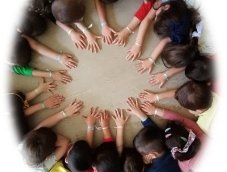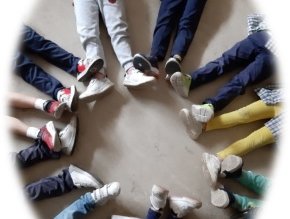The practice of Yoga, in the educational context, is a valuable tool for socio-emotional development, which involves affective and cognitive skills such as self-knowledge, self-control, self-motivation, empathy and social skills.
Yoga helps children to increase body awareness and achieve relaxation through postures that promote stability, serenity and balance; it provides techniques that contribute to the balance of energy appropriate to the context. It invites us to live the reality of the present with conscious breathing promoting concentration and attention, tranquillity of mind and the reduction of physical tensions. Thus, Yoga emerges as a complete psychophysical subject, as it proposes a range of exercises for the body and mind with various benefits.
Yoga stimulates the learning of values, respect for oneself, and respect for others, for nature. In a safe, encouraging and fun environment, between stories, music and sounds, postures, and breathing techniques. In meditation, children find a moment of calm, creativity, a journey into their imagination and their inner self. Within the scope of CSS Kindergarten, Yoga is integrated into the weekly routine of each group and in spontaneous situations, as a response to the children's behaviour.
Main Benefits of Regular Yoga Practice:
Mental
Emotional
Physical
Reference:
Coulon, J., & Flak, M. (2007). Yoga na Educação – Integrando corpo e mente na sala de aula.
Saraiva, Comunidade do Saber.

